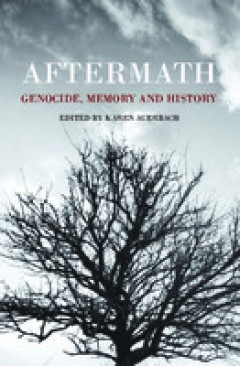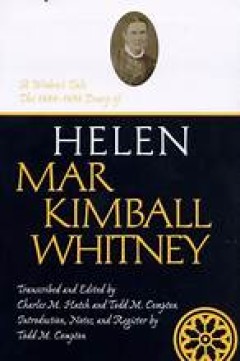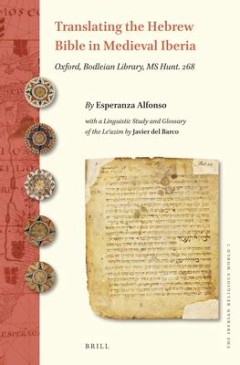Filter by

A History of the Mishnaic Law of Agriculture: Kilayim: Translation and Exegesis
This volume presents a translation and exegesis of Mishnah's Tractate Kilayim (Mixed Species) in an effort to discover the original meaning of the tractate. This volume aims to identify the sense which the formulators of the tractate's laws wished their rules to convey.
- Edition
- -
- ISBN/ISSN
- 9781951498344
- Collation
- -
- Series Title
- -
- Call Number
- -

Aftermath
Aftermath: Genocide, Memory and History examines how genocide is remembered and represented in both popular and scholarly memory, integrating scholarship on the Holocaust with the study of other genocides through a comparative framework. Scholars from a range of disciplines re-evaluate narratives of past conflict to explore how memory of genocide is mobilised in the aftermath, tracing the devel…
- Edition
- -
- ISBN/ISSN
- -
- Collation
- -
- Series Title
- History
- Call Number
- -

A Wise and Discerning Mind
This is an edited volume of essays dealing with the Hebrew Bible and its cultural environment.
- Edition
- -
- ISBN/ISSN
- 9781951498382
- Collation
- oer.unej.ac.id
- Series Title
- -
- Call Number
- -

A Brief Genealogy of Jewish Republicanism: Parting Ways with Judith Butler
A Brief Genealogy of Jewish Republicanism: Parting Ways with Judith Butler uses the chance synchronicity of the 2013 Israeli parliamentary elections and literary theorist Judith Butler’s controversial Brooklyn College address calling for the boycotting of Israeli academic, cultural, and economic institutions as an occasion for examining possible relations between Jewishness and state-centered…
- Edition
- -
- ISBN/ISSN
- 9780998237596
- Collation
- -
- Series Title
- -
- Call Number
- -

“We are not only English Jews—we are Jewish Englishmen”: The Making of …
Between 1840 and 1880, a mature, increasingly comfortable, native-born Jewish community emerged and matured in London. The history of this community and the ways it developed are explored in this volume using archival and also contemporary advertising material that appeared in the Jewish Chronicle and other Anglo-Jewish newspapers in these years.
- Edition
- -
- ISBN/ISSN
- 9781644690864
- Collation
- -
- Series Title
- -
- Call Number
- -

"The Star" for Beginners: Introductions to the Magnum Opus of Franz Rosenzweig
In "The Star of Redemption", written at the end and after World War I and published in 1921, Franz Rosenzweig presented an epoch-making Jewish-inspired philosophy of religion. In three steps, each with three chapters or "books," Rosenzweig unfolds in it his view of God, the world, and man, their interrelationship, and their contribution and role in the redemption of the world. In this introduct…
- Edition
- -
- ISBN/ISSN
- 9781914481093
- Collation
- -
- Series Title
- -
- Call Number
- -

Translating the Hebrew Bible in Medieval Iberia : Oxford, Bodleian Library, M…
Translating the Hebrew Bible in Medieval Iberia provides the princeps diplomatic edition and a comprehensive study of Oxford, Bodleian Library, MS Hunt. 268. The manuscript, produced in the Iberian Peninsula in the late thirteenth century, features a biblical glossary-commentary in Hebrew that includes 2,018 glosses in the vernacular and 156 in Arabic, and to date is the only manuscript of thes…
- Edition
- -
- ISBN/ISSN
- '9789004461222
- Collation
- 816 hlm; ill., lamp.,
- Series Title
- The Iberian Religious World, Volume: 7
- Call Number
- -

From the Battlefield of Books: Essays Celebrating 50 Years of the Taylor-Sche…
This collection of essays celebrates 50 years since the founding of the Taylor-Schechter Genizah Research Unit at Cambridge University Library. Three generations of scholars contributed their research and memories from their time at the GRU, stretching back to 1974. Their work comprises 18 articles on medieval Jewish History, Hebrew and Arabic manuscripts, archival history, and the story of the…
- Edition
- -
- ISBN/ISSN
- 978-90-04-71233-1
- Collation
- xiv, 303
- Series Title
- Études sur le judaïsme médiéval, Volume: 99/16
- Call Number
- -

Antisemitism in North America: New World, Old Hate
In Antisemitism in North America, the editors have brought together an impressive array of scholars from diverse disciplines and political orientations to assess the condition of the Jews in the United States, Canada, Mexico, and the Caribbean. The contributors do not always agree with each other, but they offer perspectives of why the Jewish experience in North America has neither been free fr…
- Edition
- Volume: 26
- ISBN/ISSN
- 9789004307148
- Collation
- -
- Series Title
- -
- Call Number
- -

Everyday silence and the Holocaust
- Edition
- -
- ISBN/ISSN
- 9781003462699
- Collation
- -
- Series Title
- -
- Call Number
- -
- Edition
- -
- ISBN/ISSN
- 9781003462699
- Collation
- -
- Series Title
- -
- Call Number
- -
 Computer Science, Information & General Works
Computer Science, Information & General Works  Philosophy & Psychology
Philosophy & Psychology  Religion
Religion  Social Sciences
Social Sciences  Language
Language  Pure Science
Pure Science  Applied Sciences
Applied Sciences  Art & Recreation
Art & Recreation  Literature
Literature  History & Geography
History & Geography